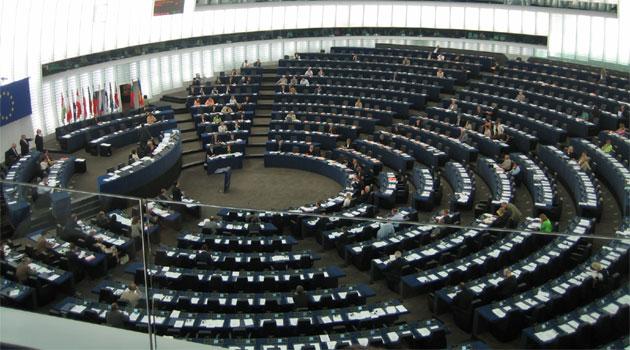The Greek neo-Nazi party Golden Dawn, which does not hide its admiration for Adolf Hitler, the Movement for a Better Hungary (Jobbik), which is often charged with anti-Romani agitation and anti-Semitism, and the UK Independence Party, which declaims against immigrants and is demanding Britain’s exit from the European Union – all of these eurosceptic, ultra-right parties are well on the way to winning seats at the EP in the upcoming elections. Even though surveys show the EP will continue to be dominated by mainstream parties, the radical right has already significantly influenced political events across Europe.
According to The Daily Telegraph, surveys indicated that in 12 of the 28 EU countries, ultra-right parties will receive enough votes to seat MEPs. In at least three European countries – Britain, Denmark and France – they will evidently even dominate in the election.
These parties draw their strength from the social dissatisfaction that spread throughout the continent during the economic crisis, which was accompanied by growing social insecurity, unemployment and falling standards of living. What these political parties share, though their degrees of radicalization differ, is a resolutely anti-immigrant stance and demands for either reforms to the EU or its direct abolition.
Years of recession and savings measures have undermined Europeans’ trust in the institutions that annually work with a budget of EUR 140 billion and influence all spheres of life, from agriculture to the justice system. Eurosceptic and ultra-right parties are not garnering success only in countries which, like Britain, have traditionally been the most critical of the European Union, or in countries like Greece which were worst-afflicted by the financial crisis.
Disillusionment is also growing in states that have always been the most faithful adherents to a common Europe, such as Finland, where the ultra-right Real Finns party has, according to surveys, almost 20 % voter support and is one of the three strongest parties in the country. However, even though predictions are coming true and eurosceptics are noting significant successes in this year’s elections, the Associated Press reports that analysts are convinced the EU is not at risk of collapse.
The European Parliament will continue to be dominated by two large factions of center-left and center-right parties, and the influence of eurosceptics will probably be limited by their relative inexperience and the enormous ideological differences between them. Many ultra-right parties that want to win the respect of the voters are clearly distancing themselves from extremist groups such as Golden Dawn in Greece, which is Fascist, or Jobbik in Hungary, which engages in harsh invective against minorities.
The more moderate eurosceptic parties are evidently attempting to create a new ultra-right faction after the elections, but for that they will need 25 MEPs from seven parties in various countries. France’s Front National, which is led by Marine Le Pen, the daughter of the famous xenophobic politician, has already announced it is planning to join forces with the Freedom Party of Geert Wilders, which is one of the three strongest parties in the Netherlands.
Filling those 25 seats does not seem to be problematic, given that these two groups themselves are expected to have 23 MEPs among them. To achieve the second criterion, however, they must convince a further five parties from other states to join them.
The UK Independence Party (UKIP) has already refused to cooperate with the "anti-Semitic National Front", but Wilders claims the UKIP will be tempted to join the ultra-right coalition after the elections. The Freedom Party of Austria, which is supported by 20 % of the electorate there, the Flemish Interest party of Belgium, the Ján Slota’s Slovak National Party, or the Northern League of Italy could all become members as well.
However the EP elections turn out, the influence of eurosceptic parties cannot be denied. Parties that were once on the fringe are currently setting the agenda, for example, in Britain, where PM David Cameron has promised to hold a referendum on EU membership in 2017 as a result of their influence.
